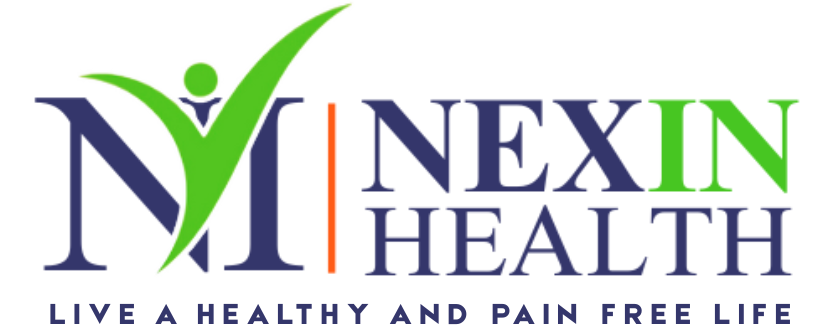Do You Really Need a Stent: When someone is diagnosed with a heart blockage, the first thought that often comes to mind is, “Do I need a stent?” In most cases, the decision is driven by fear and urgency—but is it always necessary?
While stents can save lives in certain situations, putting a stent in a heart artery that is not critically narrowed or not causing major symptoms might not give any benefit—and in some cases, could be avoided altogether.
In this blog, we’ll uncover the lesser-known side of moderate coronary artery blockages, the truth about vulnerable plaques, and what modern research says about when stents are actually needed.
- ✅ Quick Fact Sheet: Surprising Truths About Stents
- 💓 Understanding What “Significant Blockage” Really Means
- 🔍 Does Every Blocked Artery Need a Stent?
- 🔬 What Is a Vulnerable Plaque? Why Smaller Blockages Are Risky
- 📊 What Does New Research Say About Stenting These Moderate Blockages?
- 🤔 Should You Get a Stent If You Have No Symptoms?
- 🧠 Key Takeaways for Heart Patients: Do You Really Need a Stent
-
❓FAQs: Stents, Blockages & Heart Health
- 1. Do I need a stent if I have a 50% blockage?
- 2. Can a small blockage cause a heart attack?
- 3. How do I know if my plaque is vulnerable?
- 4. Is medication alone safe for moderate heart blockages?
- 5. What if I have no symptoms but have a blockage?
- 6. Are there risks with stenting?
- 7. Do stents prevent future heart attacks?
- 8. What lifestyle changes can reverse blockages?
- 9. How often should I get my heart checked?
- 10. What is the best non-invasive test for blockage risk?
- 👨⚕️ Final Words: Don't Rush the Stent Decision
- About the Author
✅ Quick Fact Sheet: Surprising Truths About Stents
-
Not all blockages need a stent—especially if there’s no angina or life-threatening risk.
-
Smaller plaques (not big ones) often rupture and cause heart attacks.
-
Over 50% of patients with moderate blockages may have vulnerable plaques.
-
Stents do not reduce the risk of death or heart attack in stable heart disease.
-
Medical therapy alone may be equally effective for many patients.
💓 Understanding What “Significant Blockage” Really Means
Many people think that any blockage in the heart automatically needs to be removed or opened. But that’s not always the case.
➤ What is a Significant Narrowing?
-
A 90% or more narrowing in a heart artery is usually serious.
-
But if the blockage is between 50% and 80%, more testing is needed to see whether it’s actually restricting blood flow.
Doctors use a test called FFR (Fractional Flow Reserve) to assess this. If the FFR value is more than 0.80, the blockage is usually not harmful enough to need a stent.
LSI Keywords used:
heart blockage 50 percent, fractional flow reserve, how to know if stent is needed, stent vs medical management, significance of heart artery narrowing
🔍 Does Every Blocked Artery Need a Stent?
Absolutely not. Especially if:
-
You have no or mild chest pain
-
The blockage is not in the left main artery
-
Your heart tests show good blood flow
In such cases, medical management (like lifestyle changes and medicines) may work just as well—without the risks of a procedure.
A Harvard study concluded that in stable coronary artery disease, stents do not increase survival or prevent heart attacks compared to medication alone.
➤ When Stents Are Most Useful:
-
During an ongoing heart attack
-
If the left main artery is significantly blocked
-
In cases of severe, limiting chest pain
LSI Keywords used:
when is a stent necessary, do stents prevent heart attacks, left main artery blockage treatment, best treatment for moderate heart blockage, stenting vs medication
🔬 What Is a Vulnerable Plaque? Why Smaller Blockages Are Risky
This is the most misunderstood part of heart disease.
People think the bigger the blockage, the more dangerous it is. But in reality, smaller blockages (50-70%) are often more likely to rupture and cause a heart attack.
These are called vulnerable plaques, and they are:
-
Soft and fatty inside
-
Covered by a thin outer layer
-
More inflamed and unstable
They cannot be seen easily in routine angiography. But advanced tools like Intravascular Ultrasound (IVUS) and Optical Coherence Tomography (OCT) can detect them.
➤ Signs of a Vulnerable Plaque:
-
Thin fibrous cap (fragile covering)
-
High fat content
-
Large plaque burden (>70%)
-
Narrow artery area (<4 mm²)
If 2 or more of these signs are present, it’s considered a vulnerable plaque.
LSI Keywords used:
vulnerable plaque heart disease, what causes plaque rupture, advanced tests for heart blockage, ivus vs oct heart, how to detect risky heart plaque
📊 What Does New Research Say About Stenting These Moderate Blockages?
A recent large-scale trial studied 1606 patients with moderate blockages. Some were given stents, and others only received medical therapy.
➤ Results After 2 Years:
-
Only 0.4% of stent group had serious heart-related events
-
3.4% of the medical therapy group had such events
-
This difference was statistically significant
But here’s the catch:
-
Deaths and heart attacks were NOT significantly different
-
Stent patients were also on strong anti-clot medicines, which may have lowered their risk
-
The study was not blinded, which could influence how symptoms were reported
🤔 Should You Get a Stent If You Have No Symptoms?
If you’re not having chest pain, and your tests show good heart function, it may be safer to avoid stenting and focus on lifestyle and medications.
Many heart patients feel better by simply:
-
Following a plant-based or heart-healthy diet
-
Walking daily
-
Taking prescribed heart medicines
-
Managing stress and BP
This approach is also more cost-effective and avoids the risks of unnecessary procedures.
🧠 Key Takeaways for Heart Patients: Do You Really Need a Stent
-
Not all heart blockages are equal.
-
Moderate or asymptomatic blockages often don’t need stents.
-
Smaller plaques can still be dangerous, but proper imaging and medical management help.
-
Latest trials show no major survival benefit from stenting in stable heart patients.
-
Talk to a cardiologist who believes in evidence-based medicine, not just quick fixes.
❓FAQs: Stents, Blockages & Heart Health
1. Do I need a stent if I have a 50% blockage?
Not always. If it’s not causing symptoms and FFR is >0.8, medical therapy is often enough.
2. Can a small blockage cause a heart attack?
Yes, if it’s a vulnerable plaque. These are soft and inflamed, and more likely to rupture.
3. How do I know if my plaque is vulnerable?
Tests like IVUS and OCT (done during angiography) can help detect this.
4. Is medication alone safe for moderate heart blockages?
Yes, many studies show that with proper medical care, outcomes are similar to stenting.
5. What if I have no symptoms but have a blockage?
In most cases, if you’re stable, doctors may recommend observation and lifestyle change.
6. Are there risks with stenting?
Yes. Risks include blood clots, artery damage, and restenosis (blockage returning).
7. Do stents prevent future heart attacks?
Not always. They help in acute heart attacks but don’t offer long-term protection in stable patients.
8. What lifestyle changes can reverse blockages?
Plant-based diet, regular walking, quitting smoking, yoga, and stress management.
9. How often should I get my heart checked?
Once a year if you’re above 40 or have risk factors. Sooner if you feel symptoms.
10. What is the best non-invasive test for blockage risk?
Tests like Coronary Calcium Score, TMT, and Stress Echo are helpful.
👨⚕️ Final Words: Don’t Rush the Stent Decision
Just because an angiography shows blockage doesn’t mean a stent is the best next step. The decision should be made after considering your symptoms, risk level, and test results.
If your condition is stable, a second opinion and lifestyle correction may be all you need. Medicine has advanced—and now we know that less can sometimes be more.
Take charge of your heart, but don’t let fear lead the treatment.
Also Read:
EECP Treatment for Heart Failure
Track Heart Failure with 6 Minute Walk Test
_____________________________________________________________________________
About the Author
Mr. Vivek Singh Sengar is the Founder of Fit My Heart and a leading Integrated Health Practitioner & Clinical Nutritionist at NEXIN HEALTH and MD City Hospital Noida. With over 13 years of experience, Vivek has treated more than 25,000 patients suffering from lifestyle diseases like heart disease, diabetes, and obesity through non-invasive, drugless, and nutrition-focused therapies.
His expertise combines modern medical knowledge with traditional Indian healing practices to provide comprehensive care for heart failure patients. Vivek’s approach focuses on sustainable lifestyle modifications, nutritional therapy, and patient education to achieve optimal cardiovascular health outcomes.
Get Expert Guidance for Your Heart Health:
📧 Email: care@nexinhealth.in
📞 Phone: +91 93101 45010
💬 WhatsApp: Click to Chat
Take the first step towards better heart health today. Contact our team for personalized heart failure management plans tailored to your specific needs and lifestyle.



